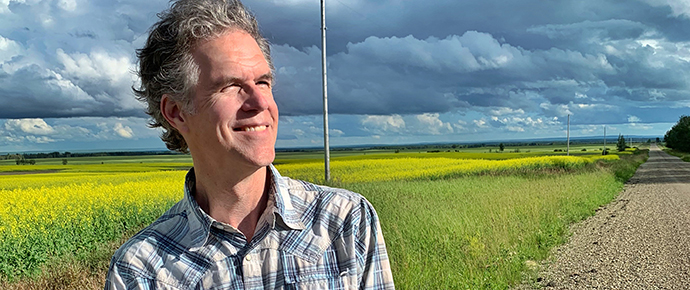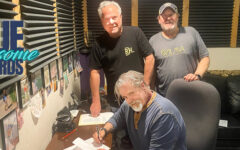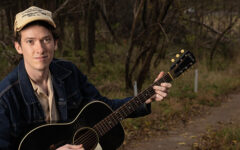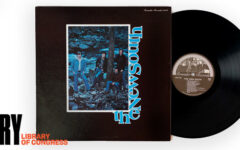
For my band, Labor Day weekend marked the first return to playing in front of in-person audiences. Now, a few weeks later, after more festival dates and some real night-driving thrown in (Bean Blossom to Nashville in the wee hours), we’re getting some of the feeling of pre-2020 days. It’s gratifying, inspiring, and occasionally disorienting. I think it’s something none of us will ever take for granted again.
The disorienting part, I should explain, is the strange time warp feeling this revival of in-person shows is bringing about. At times it feels like we were just out doing this a few months ago. At the Walnut Valley Festival in Winfield, KS, I and people around me kept referring to “last year” which really meant 2019, two years ago. At other times, though, the road and the pre-pandemic live music routine seems so long ago that it all seems new, and we’re all rookies again, playing in our first professional band.
In my view, the perfect way to express these conflicting feelings is in the form of haiku. Besides, with the road routine back in full swing, I don’t seem to have the time-management skills I once had (which were already minimal), and so I no longer have time to write more than 17 syllables about anything.
Below are some return to live music haiku, but first a quick review of what haiku is (are?) reprinted from an earlier column:
The haiku originated in Japan, and is a short form of poetry written in three lines. The more traditional form of haiku was written in 17 syllables, broken down into lines of five, seven, and five, and it started more as an introduction to a longer poem. The first stand-alone haiku dates back to the 17th century and is often credited to a Japanese poet named Brendan O’Toole (a stage name, apparently).
The haiku characteristically uses no punctuation, and it contains themes of nature, or at the very least, a salad is mentioned in it somewhere.
Originally, these concise poems were called “hokku,” but in the 19th century, Masaoka Shiki (of Galway, Ireland) changed the name to “haiku,” just because he could. A later New Orleans form of the poem was called “haiku haiku un-day.”
It’s great to be back
or have we ever been here
who are you people?
of course I’ve been vaxxed
I’m still not shaking your hand
nice to see you mom
brand new band members
they joined us two years ago
I forget their names
security line
do we still take our shoes off?
is this knife okay?
my strings seem quite dead
even though I just changed them
in 2019
I’ve blanked on the words
to blue moon of kentucky
and everything else
so long Alexa
I’m seeing other people
I know that seems weird
yes we’ve grown older
and fifteen pounds heavier
but . . . oh whatever
glamour of the road
lack of sleep, all deep-fried food
how did we survive







